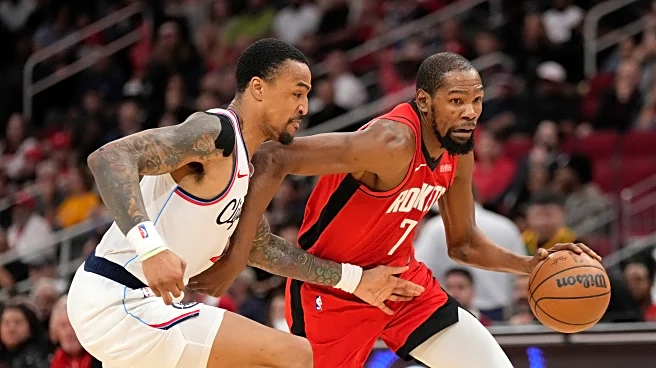Rapid Read • 6 min read
Western Sahara remains a disputed territory in North Africa, primarily claimed by Morocco and the Polisario Front, which represents the indigenous Sahrawi people. The region, described by the United Nations as a 'non-self-governing territory,' has been under Moroccan control since Spain withdrew in 1975. The Polisario Front, advocating for Sahrawi independence, controls approximately 30% of the territory. The area is largely desert, with a sparse population of around 500,000, half of whom reside in the city of Laayoune. The African Union and at least 81 governments recognize the Sahrawi Arab Democratic Republic (SADR), declared by the Polisario in 1976. Despite the ongoing conflict, Morocco has proposed autonomy for Western Sahara under its sovereignty, a plan supported by some international actors.
AD
The Western Sahara conflict has significant implications for regional stability in North Africa. The dispute affects diplomatic relations, particularly between Morocco and Algeria, which supports the Polisario Front. The region's rich natural resources, including phosphates and potential offshore oil deposits, add economic stakes to the conflict. The unresolved status of Western Sahara also impacts the lives of thousands of Sahrawis, many of whom live in refugee camps. The international community's stance, including recognition of Moroccan sovereignty by some countries, influences the potential for a peaceful resolution. The conflict's resolution could lead to economic development and improved living conditions for the Sahrawi people.
AD
More Stories You Might Enjoy













